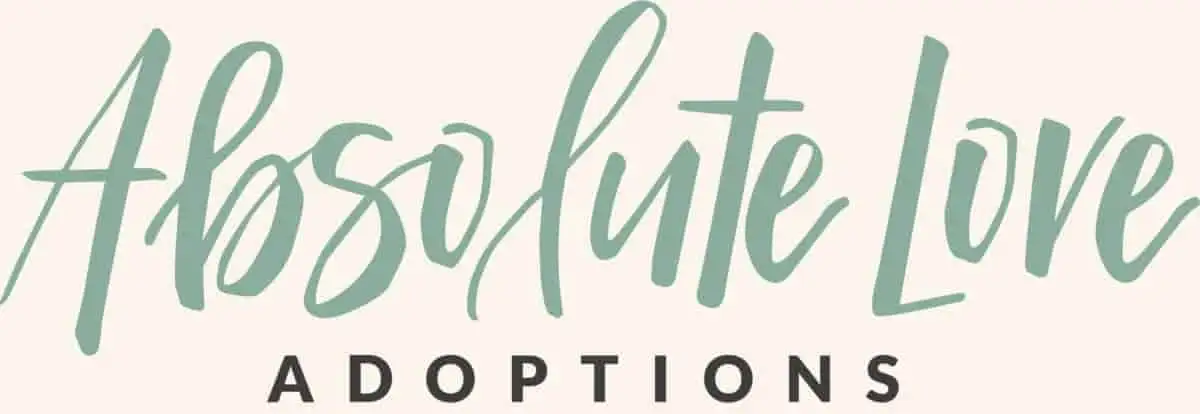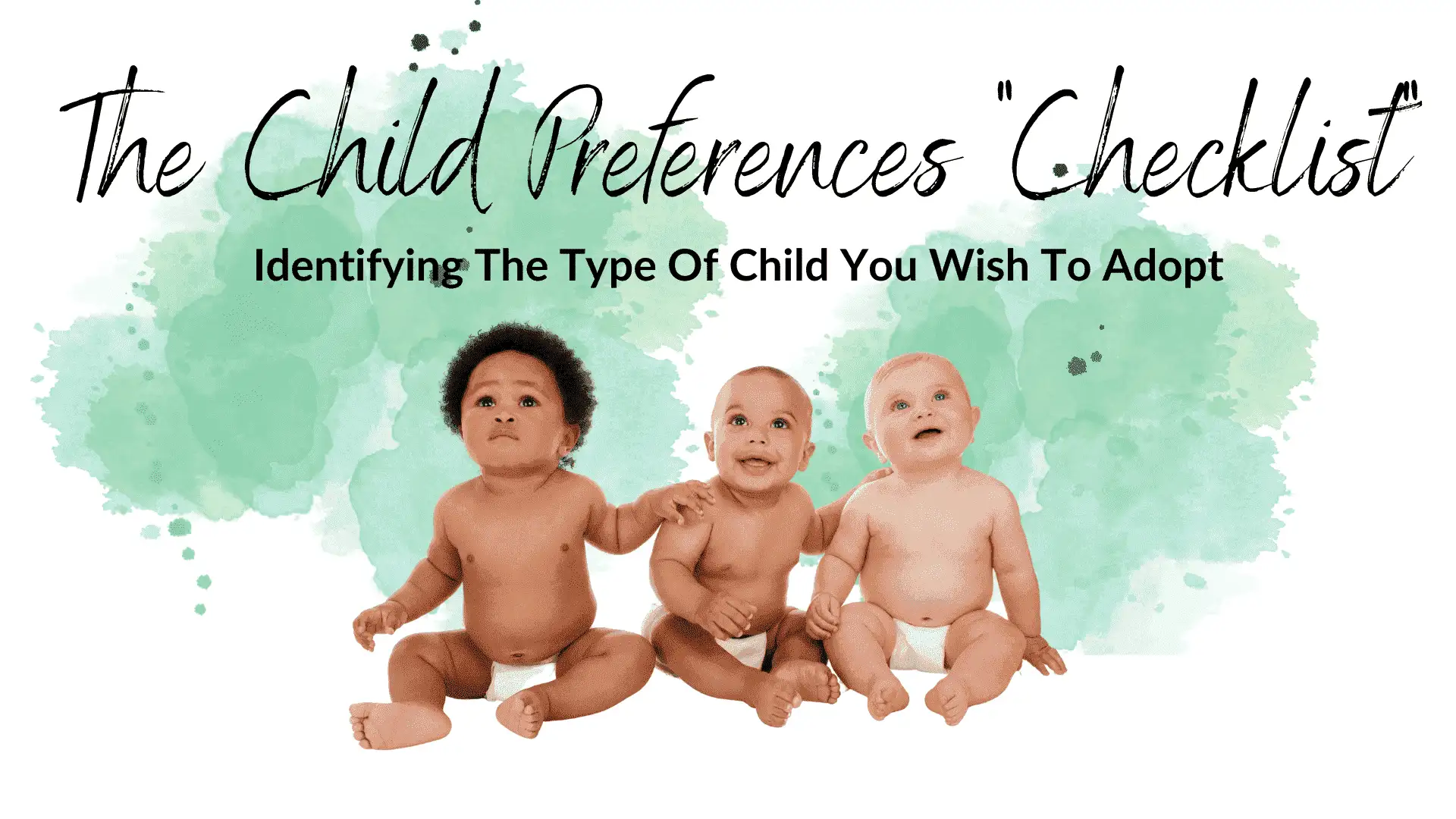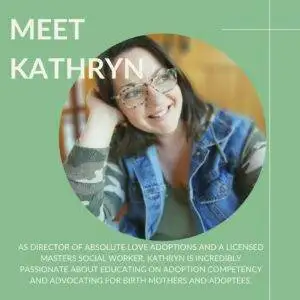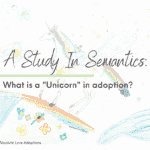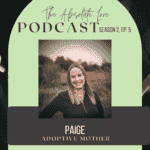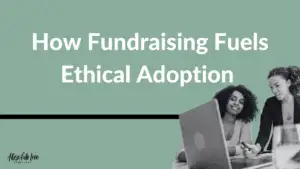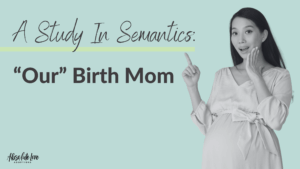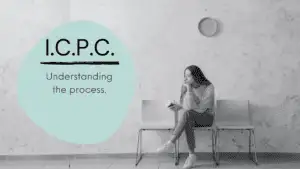The Child Preferences "Checklist": Identifying The Type Of Child You Wish To Adopt
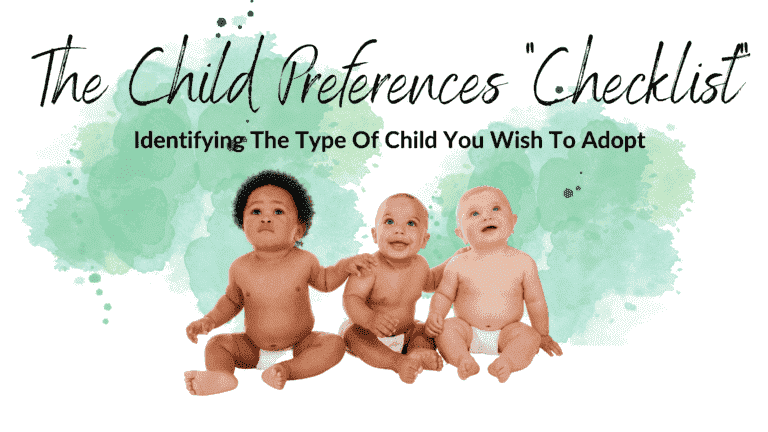
When coming to adoption and engaging with the Home Study process, you will be asked to fill out a Checklist of characteristics you are “willing to accept”. This is industry speak for the type of child you are interested in adopting.
The Checklist is used as a tool to inform the matching process with an expectant mother and baby. The goal in matching is to ensure the needs of the child and the birth family are acknowledged by the adoptive family, and that the adoptive family is capable of meeting those needs.
"Willing To Accept"
Before exploring the contents of the checklist, let’s address the language “willing to accept”. While the checklist is intended to be utilized in a child centered way, the power in the phrase “willing to accept” can communicate that the adopting parents have complete control over the child coming into their family. Rather than a guide to rule out certain situations that would not be well cared for in your home or community, the checklist has encouraged families to approach the type of child they are looking for much like a wish list for a Unicorn Baby.
Agencies utilize these checklist you make, to match you to the information on an expectant parents social history form that tells us their substance use, family medical history and wishes for adoption. While both lists can be useful, they are not all encompassing. It is common that the social and medical history coming from an expectant mom (and or dad) is abbreviated, inaccurate, or absent, many conditions do not arise until well childhood or even adulthood, often health conditions are not genetic, and research is somewhat limited in how certain in utero experiences actually affect a developing child.
So knowing this, referring to a child as “willing to accept” is harmful. In many ways, the language commodifies children being placed for adoption. It also allows adopting parents to drive “supply and demand” for the characteristics of a child deemed most desirable by the participant in adoption with the power, the adopting parents.
Read about everything you are considering and have lots of conversations with your partner, family, friends and adoption professionals. Recognize that lack of experience often triggers a fear response when presented with a new idea. Focus on the categories as prompts for you to assess how to meet that specific need of a child in your care, rather than how that child might meet your needs.
While every agency or professionals checklist is unique to them, the most common categories you are asked to consider include:
Medical History of Birth Parents
Social History including substance use and abuse
Conception circumstances
Gender
Race
Medical Conditions:
Some of the more common medical conditions in expectant mothers are an individual or family history of mental health conditions, most notably anxiety and depression. Some are conditional and others are chronic and treated with medications and/or therapy. Other mental health conditions of concern would be bipolar or schizophrenia which require lifelong care.
Other medical conditions you are asked to learn about and consider regarding the birth parent include HIV exposure, STI diagnosis during pregnancy, Diabetes in the mom, or pregnancy and genetic heart conditions, cancers or autoimmune diseases. Conditions in a child that require lifelong care to some extent would be spina bifida, cerebral palsy, Down Syndrome and others.
Substance Use:
Many children being placed for adoption are exposed in utero to illicit drugs, alcohol, nicotine or perscription drugs. Each substance has its own potential effect on the developing fetus, usually related to type, frequency and quantity of use. We recommend connecting with a pediatrician or taking a course on exposure to learn more.
Circumstances Surrounding Conception:
One of the most heartbreaking topics to talk about with adoptees is their origin story when there are themes of violence like rape or incest. You are asked to consider a violent conception because your child will one day learn their own story from you. For some adopting parents, the topic of sexual violence can be a trigger they are not in a place to absorb. For others, they likely need support in learning how to talk about these tough stories with their children.
Gender Preference:
It has become standard in the adoption world for hopeful parents to make a selection regarding the sex of a child they wish to adopt. Remember that adoption is not about meeting the desires of a waiting parent. We suggest doing some additional learning on sex versus gender and how your learned beliefs might be affecting your desires to adopt one sex child over the other.
Race:
For many hopeful adoptive parents, race is only loosely considered. Often we hear “we would love any child!”. While this may be true, love is simply not enough when adopting transracially. In adopting transracially you become a walking billboard for adoption wherever you go, whether you like it or not. And more importantly, whether your child likes it or not. Adoption often becomes the first thing people notice about a transracial adoptee when they are with their family. That immediate “otherness” is complex and often painful for adoptees. A healthy adoptive family must understand why race matters, how it impacts a person throughout their lifetime, and how to be the best advocate and ally for your adopted child.
For more on transracial adoption, listen to The Absolute Love Podcast Season 2 Episode 5, an interview with Paige, a 2 time transracial adoptive parent.
Sometimes professionals urge hopeful families to open to characteristics they are not in fact open to. Often this is done under the pressure that you will wait less time if you open your filters.
Please remember the interest of matching quickly does NOT override the goal at the center, which is matching a child with waiting families who have the skills, knowledge, desire and resources to parent that child.
View our Absolute Love Adoptions checklist here.
